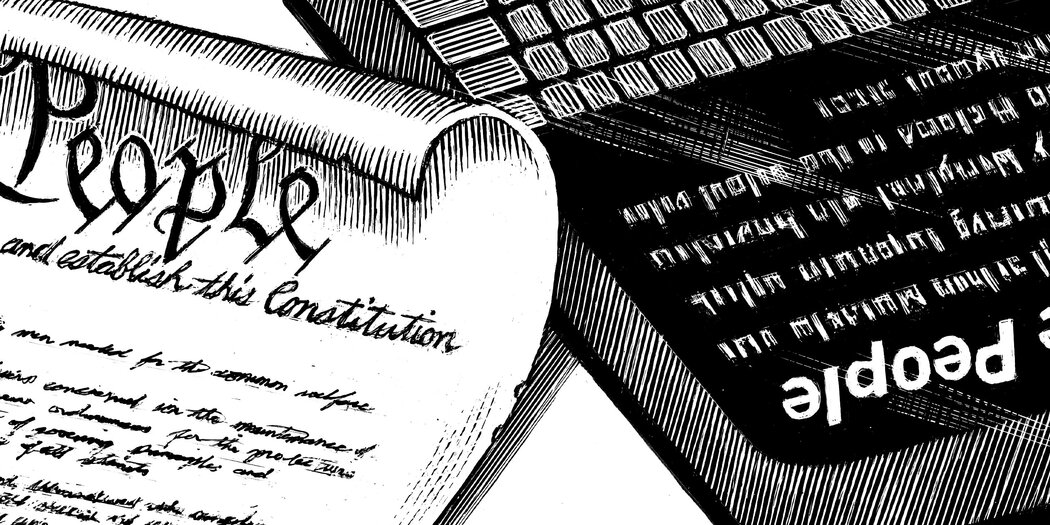Source: Florida Action Committee 1/21/26 [ACSOL note: This is well written and invites other organizations to come together to plan a way forward.] The Supreme Court’s decision in Holsey Ellingburg v. United States (No. 24-482) should reopen a long-overdue conversation about the constitutional foundations of modern sex offender laws. In Ellingburg, the Court made clear that labels do not control constitutional analysis: when a legal consequence operates like punishment, is imposed as part of a criminal judgment, enforced through the criminal justice system, and carrying real, coercive consequences, it must be treated as…
Read MoreCategory: Commentary
Effectiveness of sex offender registration policies in the United States
Source: grokipedia.com [ACSOL’s note: This document was generated by AI, but it does have useful information. It also has extensive references at the end. Take what you find useful, and leave the rest] [Wikipedia’s description of Grokipedia: Grokipedia an AI-generated online encyclopedia operated by the American company xAI. The site was launched on October 27, 2025. Some entries are generated by Grok, a large language model owned by the same company, while others are forked from Wikipedia, with some altered and some copied nearly verbatim.] Sex offender registration policies in…
Read MoreHoliday Message from One Registrant
I am writing to you with humility, clarity, and purpose. I am a Tier 3 Registered Sex Offender. That is a fact of my life, and I do not hide from it. What I write to you about today is not denial, but meaning, what comes after a sentence, after punishment, and after society decides whether a human being is allowed to exist again as more than a label. Since July 7, 2015, I have worked every day to prove, to myself first, and then to the world, that a…
Read MoreConstitution Civil Due Process Civil Rights Speech and Religion Judicial Interpretation Torts and Liability State High Courts Split on Laws Letting Survivors of Sexual Abuse Sue After Expiration of Statutes of Limitations
Source: statecourtreport.org 11/24/25 State supreme courts have emphasized different constitutional provisions to decide whether bills reviving time-barred civil causes of action for child sexual abuse claims are constitutional. In recent years, several state legislatures have passed statutes making it easier for survivors of sexual abuse to bring civil suits against their abusers and related non-perpetrator defendants. On one hand, these laws have given many survivors the chance to seek justice after decades with no recompense for their suffering. On the other hand, they have exposed institutions like public school districts…
Read MoreTim Ballard’s Reputation is in Shambles. The Americans He Helped Arrest Want Answers.
Source: theappeal.org 12/9/25 Tim Ballard, the disgraced “anti-sex-trafficking” expert, was the subject of a hit 2023 biographical film and serial sexual misconduct allegations in the same year. After Ballard’s fall, the people he helped arrest in Washington want to know why no one seems willing to take a second look at their cases. Back in 2014, a Washington State Patrol sergeant named Carlos Rodriguez was hunting for money. His unit, the Missing and Exploited Children Task Force, faced a budget shortfall, and legislators were of little help—they were in…
Read MoreArrest Mark Zuckerberg for Child Endangerment
Source: newrepublic.com 12/3/25 Shocking new revelations about Instagram in a lawsuit against social media companies should pave the way for an ambitious prosecutor to file criminal charges. Should Mark Zuckerberg be handcuffed—literally—for the threat his products pose to millions of children? That’s the inescapable question raised by a legal brief filed last month in a civil case against major social media companies. The litigation, which alleges that social media platforms have been purposefully cultivating addiction among adolescents, has been working its way through the courts since 2022. But the details laid…
Read MoreDOJ Says Violent Stalker Used ChatGPT to Encourage Him to Find the ‘Wife Type’
Source: 404media.co 12/3/25 [ACSOL is posting this as a warning] A newly filed indictment claims a wannabe influencer used ChatGPT as his “therapist” and “best friend” in his pursuit of the “wife type,” while harassing women so aggressively they had to miss work and relocate from their homes. A Pittsburgh man who allegedly made 11 women’s lives hell across more than five states used ChatGPT as his “therapist” and “best friend” that encouraged him to continue running his misogynistic and threat-filled podcast despite the “haters,” and to visit more gyms…
Read MoreLawmakers To Consider 19 Bills for Childproofing the Internet
Source: reason.com 12/1/25 KOSA is back, along with more than a dozen other bills that will erode free speech and privacy in the name of protecting kids. Can you judge the heat of a moral panic by the number of bills purporting to solve it? At the height of human trafficking hysteria in the 2010s, every week seemed to bring some new measure meant to help the government tackle the problem (or at least get good press for the bill’s sponsor). Now lawmakers have moved on from sex trafficking to social…
Read MoreSmarter Federal Supervision: Cut Costs And Improve Fairness
Source: forbes.com 11/11/25 A Growing Focus on Post-Prison Supervision In recent discussions on criminal justice reform, attention has shifted from sentencing laws to what happens after prison. The federal supervised release system, originally intended to help people transition successfully back into the community, has become a major point of debate among policymakers, researchers, and reform advocates. Former House Speaker Newt Gingrich recently wrote in a Fox News commentary that improving how the United States manages supervision after incarceration could be “the next frontier in criminal justice reform.” His statement aligns with recent reports from…
Read MoreIs the Federal Prohibition on Felon Firearm Possession Constitutional?
Source: reason.com 11/16/25 Judge Willett thinks that some federal statutes have been interpreted and applied in ways that conflict with the notion that the federal government only has limited and enumerated powers. Arnett Jackson Bonner has multiple felony convictions. This means he cannot possess a firearm. Under 18 U.S.C. § 922(g)(1), convicted felons may not “possess in or affecting commerce, any firearm or ammunition; or to receive any firearm or ammunition which has been shipped or transported in interstate or foreign commerce.” Because almost all firearms have been shipped…
Read MoreAgainst moral panic: Or, dolls aren’t real kids
Source: wilsontimes.com 11/4/25 On Monday, The Washington Post reports, “fast-fashion” retailer Shein banned sales of sex dolls on its site after a government regulatory agency threatened to bar the company from operating in France and referred it to prosecutors. Some of the dolls sold on Shein’s online platform were, it seems, too “childlike” in appearance. I consider it lazy to assert, as many opinionators do, that “no one” supports, or “everyone” wants, this or that particular thing, but if there’s a subject that commands anything close to societal unanimity, it’s…
Read MoreCivil Commitment and the Criminalization of Homelessness
Source: petrieflom.law.harvard.edu 10/24/25 In July, President Donald Trump issued an Executive Order titled “Ending Crime and Disorder on America’s Streets,” (the Order) to address homelessness — or what his administration called “endemic vagrancy,” disorderly behavior, and violent attacks. By encouraging states to expand civil commitment programs while dismantling initiatives such as “housing first” that provide more holistic support, the Order calls for a blunt solution to the incredibly complex issue of homelessness. Perhaps equally concerning and less publicly discussed is the Order’s quiet reference to the Sexually Violent Predator (SVP) federal program.…
Read MorePunishment by Another Name
Source: sentencing.substack.com 10/13/25 This term, the Supreme Court will hear the case of Ellingburg v. United States, which asks whether criminal restitution under the Mandatory Victims Restitution Act (MVRA) constitutes punishment for purposes of the Ex Post Facto Clause. The Clause prohibits retroactive increases of criminal punishments, ensuring that the government cannot change the rules after the fact to impose harsher penalties. Criminal restitution — the money paid by a defendant to a victim — has grown into one of the most troubling, yet least examined, features of modern criminal sentencing. Unlike criminal…
Read MoreYou Paid Your Debt, So Why Are You Still in Prison?
Source: substack.com 10/11/25 Most of us have heard the phrase “paid your debt to society.” It wasn’t just a catchy line — it once meant something real. When prisons were first called penitentiaries, the idea was rooted in penitence — serving your time, reflecting, and then rejoining society with a clean slate. Back then, once you finished your sentence, you were done. Your debt was settled. You went home, got back to work, and reintegrated into your community. You weren’t branded forever by the worst moment of your life. But somewhere along the way, America abandoned…
Read MoreThe Sex Offender Registry Shouldn’t Mean We’re Unwelcome at Church
Source: filtermag.org 9/25/25 In the Bible Belt, there’s basically a church on every corner—especially here in Nashville. It feels like there should be so many options to choose from if you want to join a faith community. But the church doors are often closed to people on the sex offender registry, including myself. Sex offender registries are designed so that society treats you like a leper; as if you should be sent away somewhere, so that “decent” people don’t have to worry about you. I’ve felt that shame deeply in the…
Read MoreShould Paying for Sex Be a Crime? A debate between Melanie Thompson and Kaytlin Bailey
Source: reason.com 9/16/25 Melanie Thompson of the Coalition Against Trafficking in Women and Kaytlin Bailey of Old Pros debate the resolution, “Paying for sex should be a crime.” Thompson is arguing in favor of the resolution. She is the chief advocacy and outreach officer at the Coalition Against Trafficking in Women International, an organization working against the trafficking and sexual exploitation of women and girls. Bailey is arguing against the resolution and is the founder and executive director of Old Pros, a non-profit media organization that uses storytelling to advocate for sex workers’ rights. She is…
Read MoreAustralia: Queensland is creating a public child sex offender register. Will it keep people safer?
Source: theconversation.com 8/26/25 Queensland is creating a public child sex offender register. Will it keep people safer? The Queensland government will this week table legislation creating Australia’s first public child sex offender register. The Queensland legislation, to be known as Daniel’s Law, was named in honour of Sunshine Coast teenager Daniel Morcombe, who was abducted and murdered by a sex offender more than two decades ago. But will this new legislation actually work to make children (and the public) safer? Will it act as a deterrent for those contemplating offending or…
Read MoreParents: Stop Giving Your Kids (And Everyone Else’s) To The Government
Source: thegarrisoncenter.org 8/17/25 At a 1992 debate, an audience member hit incumbent US president George H.W. Bush, as well as candidates Bill Clinton and Ross Perot, with an interesting question. I personally recall the moment, and found it somewhat odd at the time, but I’m trusting AI on the exact quote, so don’t ask for my oath on its accuracy: “I ask the three of you to look into the camera and talk to us about how you would be as a president, as a father of the country. Why…
Read More






